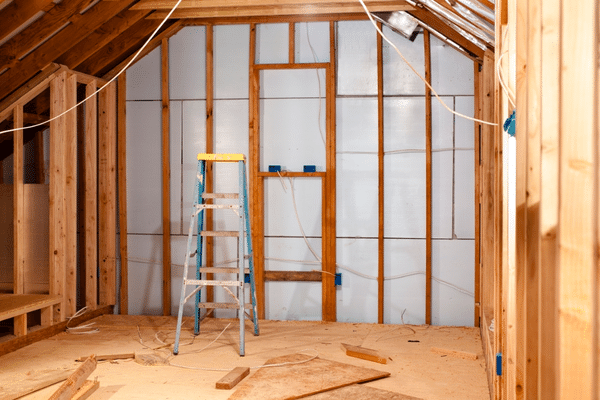Room Additions vs. Moving: Which Makes More Financial Sense?
- Dreamprint Home Remodeling
- Oct 11, 2023
- 2 min read
In the ever-evolving landscape of homeownership, a question that frequently arises is whether it's more financially sensible to invest in a Room addition or simply move to a new home. It's a complex decision that depends on various factors, including your budget, needs, and long-term goals. In this article, we'll explore the pros and cons of both options to help you make an informed choice.

The Case for Room Additions
1. Cost Considerations: When considering a room addition, one of the most immediate factors to weigh is the cost. Moving to a new home involves a host of expenses, including real estate agent fees, closing costs, and moving expenses. On the other hand, room additions, while not cheap, can often be a more cost-effective way to create additional living space.
2. Customization: Room additions offer a high degree of customization. You have the freedom to design the space to meet your exact needs and preferences, whether it's an extra bedroom, a home office, or a family room. This level of personalization can be hard to find in an existing home.
3. Neighborhood and Schools: If you're already settled in a neighborhood with good schools and a strong sense of community, relocating can be a difficult decision. Room additions allow you to stay in your current location, avoiding the upheaval of moving.
4. Return on Investment (ROI): Research suggests that well-planned and executed room additions can offer a respectable return on investment. This is particularly true if your addition enhances the overall functionality and appeal of your home.

The Case for Moving
1. Space and Location: If you're outgrowing your current home and the location is no longer suitable for your lifestyle, moving may be the best solution. Finding a larger, more suitable property can provide the space and location that a room addition may not offer.
2. Timing and Convenience: Room additions can be disruptive to your daily life. Construction work can take weeks or even months, affecting your routine. If you need more space quickly and don't want to deal with the inconveniences of construction, moving may be the more convenient option.
3. Resale Value: While room additions can add value to your home, they may not always provide a one-to-one return on investment. In some cases, you might recover a smaller percentage of the costs when you sell your home. Moving to a larger, more valuable property may offer a better financial return.
4. Lifestyle Change: If your lifestyle and needs have significantly changed, such as a growing family or a desire for a different environment, moving can be an opportunity for a fresh start.
Making Your Decision
In the end, the choice between room additions and moving hinges on your unique circumstances. Here are some key considerations to help you make an informed decision:
Budget: Consider your financial capacity and how each option aligns with your budget.
Long-Term Plans: Think about your long-term goals, including how your family might grow or your lifestyle may change.
Emotional Attachment: Consider your attachment to your current home and community.
Timing: Determine how quickly you need the additional space.
Conclusion
Remember that there's no one-size-fits-all answer. Ultimately, the decision should reflect your personal preferences, financial situation, and future plans. Both room additions and moving have their advantages and drawbacks, and your choice should align with your unique circumstances and priorities.



Comments